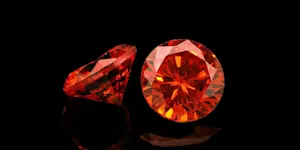What Makes This Word Tick
"Stupefy" is a lively verb that means to stun or overwhelm with amazement or bewilderment. It's the kind of word that perfectly captures the effect of a dramatic plot twist or an unexpected surprise, like when your favorite TV character suddenly reveals a hidden superpower.
If Stupefy Were a Person…
If "stupefy" were a person, they'd be the eccentric magician at a local fair, wowing the crowd with tricks that leave everyone scratching their heads in wonder. Sporting a quirky hat and a mischievous grin, they'd thrive on the joy of the gasp and the eyes-wide-open moments they cause.
How This Word Has Changed Over Time
Originally from the Latin "stupefacere," which means to “make stupid or senseless,” "stupefy" hasn't wandered too far from its roots. It still conveys the sense of being so stunned or amazed that you barely know what to think or do—a constant since the 16th century!
Old Sayings and Proverbs That Use Stupefy
Though "stupefy" isn’t embedded in traditional proverbs, the sensation it evokes is timeless. Think of sayings that involve being speechless or caught off guard—timeless tales of wide-eyed amazement exist in every culture!
Surprising Facts About Stupefy
Did you know that "stupefy" can be found in the spellbooks of many a magical universe? In Harry Potter, "stupefy" is a spell that renders victims unconscious. Now, that’s an impressive shortcut to a nap!
Out and About With This Word
"Stupefy" likes to hang out in places brimming with intrigue and revelation. Whether it’s a whodunit mystery novel or an intense roller coaster ride, it's the word that pops up when reality takes a wild turn.
Pop Culture Moments Where Stupefy Was Used
Besides its magical incarnation in Harry Potter, "stupefy" has made its mark in countless movie dialogues and dramatic moments on stage when characters are left open-mouthed and speechless, just like the audience.
The Word in Literature
Authors fond of weaving tales with twists and turns love "stupefy." It’s a literary favorite for describing a turn of events so shocking that it leaves characters—and readers—grasping for comprehension in thrillers and mysteries.
Moments in History with Stupefy
The moment when Neil Armstrong set foot on the moon must've been positively "stupefying" for those watching—it was a boundary-busting, history-redefining moment that left the world staring wide-eyed at their television screens.
This Word Around the World
In French, you might say "abassourdir" to discuss being stupefied, while in Spanish, it might be "atontar." The reaction it describes crosses linguistic borders and universes—everyone understands that jaw-dropping moment!
Where Does It Come From?
"Stupefy" has its origins in the Latin "stupidus" for numb or senseless and "facere" to make, which together give us “stupefacere” or literally, to make someone numb or bewildered.
How People Misuse This Word
Some folks might toss "stupefy" into casual conversation to mean confuse or befuddle, when it's more about overwhelming surprise than muddling through a puzzle.
Words It’s Often Confused With
Stupefied and Stupid: While both come from the same Latin root, being stupefied implies temporary shock or amazement, not a lack of intelligence.
Astonish: Often used interchangeably, but astonish leans more toward amazement without the stunned incapacity that stupefying often implies.
Bewilder: Focuses more on confusion than the sense of awe and utter shock that stupefy captures.
Additional Synonyms and Antonyms
For synonyms, you might consider "dumbfound," "astound," or "flabbergast," each carrying its own slight twist. As for antonyms, consider "enlighten" or "clarify," as they guide away from that overwhelming, stunning sensation.
Want to Try It Out in a Sentence?
"When she heard the news, the experience was so unexpected that it utterly stupefied her, leaving her unable to form a coherent thought for several minutes."
















